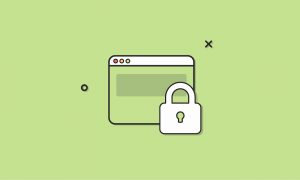 Before we pointed out that most people underestimate the importance of having a secure password, and still make the mistake of using simple words and numbers as a password.
Before we pointed out that most people underestimate the importance of having a secure password, and still make the mistake of using simple words and numbers as a password.
Keep in mind that your email and social network accounts contain very personal information about you. You must have a strong password to keep your personal life personal, and not become a victim of identity theft.
- Using email or your profile on Facebook, Whatsapp or Google, hackers can and do, extract a huge amount of personal data of your personal “online” life.
- If you use the same password for multiple online accounts, you run the risk, if this password is hacked, of all your online accounts being compromised.
- Using a personal name for an online account, the name of the city that you live in, the names of your children or your date of birth, give hackers vital clues for attempting to access your personal data.
- For an average expert hacker, it is always easy to find passwords that are made up of words from the English vocabulary or other languages, using a basic technique called “brute force” or “dictionary” attacks.
What makes a password safe?
- A password at least 8 characters long.
- The password does not contain information that is easy to find online, such as the date of birth, the telephone number, your spouse’s name, the name of a pet, or a child’s name.
- The password does not contain words found in the dictionary.
- The password contains special characters like @ # $% ^ &, and numbers.
- The password uses a combination of uppercase and lowercase letters.
A trick that the experts use to create secure passwords:
Think of a phrase and use the first letters of the words in the phrase.
- For example: “In South Africa, a barbecue is called a Braai!”
- Take the first letters of each word and the password that is created is ISAabicaB!
- This will be very difficult to guess, but easy to remember.
- At this point, you can decide to make your the Google password is ISAabicaB!-G, and Facebook ISAabicaB!-F and your university account ISAabicaB!-US and so on.
- There is already a capital letter and a special character (!), so you just need to add a number to finish off a good password like 9-ISAabicaB!-US (9 could be the month you created the password in – for example)
You will have already made your password a lot more difficult to hack, and it can be a lot of fun to create.
Tags: cyberaware, cybersecurity, password, passwords, phishing

